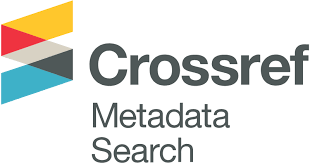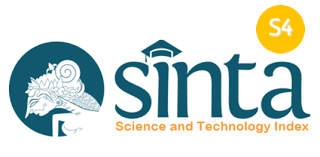Dinamika Politik Proses Keputusan Impor Beras Tahun 2018 dan Tahun 2021
DOI:
https://doi.org/10.47313/pjsh.v7i2.1857Keywords:
impor beras, elite pemerintah, elite non-pemerintah, keputusan Presiden JokowiAbstract
The rice import decision process in 2018 and 2021, creates different view on government elites and government elites with non-government elites. The government elites are Presiden Jokowi, the Coordinating Minister for the Economy, the Trade Minister, the Agriculture Minister, the Director Bulog, and DPR. Non-government elites are political parties, observers, civil society. The focus this article is first, to discuss the differences in the views of the Minister of Trade against the Director of Bulog and the Minister of Agriculture regarding the rice impor decision process in 2018 and 2021. Second, to discuss President Jokowi’s decision to continue rice imports in 2018 and his decision to cancel rice imports in 2021. The argument of this paper is that the different views of government elites on the rice impor process in 2018 and 2021 are base on political-pragmatic interests versus ideolocal-stategic interests and interest of institution-organization. President Jokowi’s decision to cancel the to import rice in 2021, because the rejection of the plan did not only come from the DPR as government elites, the refusal also came from the political party elite as non-government elite.
Proses keputusan impor beras pada tahun 2018 dan tahun 2021, menimbulkan perbedaan pandangan pada elite-elite pemerintah dan elite-elite pemerintah dengan elite-elite non-pemerintah. Elite-elite pemerintah dimaksud yaitu Presiden Jokowi, Menko Ekonomi, Menteri Perdagangan, Menteri Pertanian, Direktur Bulog, dan DPR. Elite-elite non-pemerintah yaitu partai politik, pemerhati, dan masyarakat sipil. Fokus artikel ini adalah: pertama, mendiskusikan perbedaan pandangan Menteri Perdagangan berhadapan Direktur Bulog dan Menteri Pertanian tentang proses keputusan impor beras tahun 2018 dan tahun 2021. Kedua, mendikusikan keputusan Presiden Jokowi melanjutkan impor beras tahun 2018 dan keputusannya membatalkan impor beras tahun 2021. Argumen tulisan ini adalah perbedaan pandangan elite-elite pemerintah dalam proses impor beras tahun 2018 dan 2021 dilandasi kepentingan politis-pragmatis versus kepentingan ideologis-strategis dan kepentingan organisasi-institusi. Keputusan Presiden Jokowi membatalkan rencana impor beras tahun 2021, karena penolakan rencana tersebut bukan hanya berasal dari DPR sebagai elite-elite pemerintah, penolakan juga datang dari elite partai politik sebagai elite non-pemerintah.
References
Anderson, James E. (1969). Public Policy Making, New York Hplt, Rinehart and Winston, 2end ed.
Breuning, Marijke. (2011). Content Analysis, John T. Ishiyama & Marijke Breuning (Ed), 21st Century Political Sience ARefernce Handbook, Los Angeles-London, New Delhi, Singapore, Wasington DC: Sage Publication Inc.
Conn, Paul. (1971). Conflict and Decision Making: An Introduction to Political Sience: New York: Harper& Row Publisher.
Duverger, Maurice. (1991). Sosiologi Politik (terjemahan Daniel Dhakidae), Jakarta: Rajawali.
Nordlinger, Eric A. (1972). Conflict Regulation of in Divided Societies, Center for International Affairs, Harvard University.
Harrison, Lisa. (2001). Political Research: An Introdauctin, Routledge: Psychology Press.
Jalal, Asran. (2021). Sistem Presidensial Indonesia Masa Kepemimpinan Presiden Soesilo Bambang Budiono (2004-2014). Populis, Jurnal Sosial dan Humaniora. Vol 6, No 2.
Jensic, Alicia. (2011). Qualitative VS Quantitative Research, John T. Ishiyama & Marijke Breuning 21st Century Political Sience A Refernce Handbook, Los Angeles-London, New Delhi, Singapore,Wasington DC: Sage Publication Inc.
Lester, James P. & Joseph Stewart. (2000). Public Policy: An Evolutionary Approach. Australia: Wardswort, Scond Edition.
Lijphart, Arend. (1992). “Introduction”, Arend Lijphart (Ed), Parliamentary Versus Government, New York, Oxford University Press, 1992.
Linz, Juan “The Perils of Presidensialism, Journal of Democracy 1 (1) 51-69.
DOI:10.1353/jod.1990.0011.
Mainwaring, Scott. (1993). “Presidentialisme, Multipartism, and Democracy: The Difficult Combination, dalam Comparative Political Studies, Vol.26, No.2.
Rauf, Maswadi. (2001). Konsensus dan Konflik Politik Sebuah Penjajagan Teoritik, Jakarta: Direktorat Jenderal Pendidikan Tinggi Departemen Pendidikan Nasional.
Romli, Lili. (2019). Sistem Presidensial Indonesia Dinamika, Problematik, dan Penguatan Kelembagaan, Malang: Setara Press.
https://bisnis.tempo.co/read/1139883/indonesia-surplus-beras-tapi-masih-impor-kenapa/full&view=ok.
https://mediaindonesia.com/opini/185240/kontroversi-impor-beras
https://finance.detik.com/berita-ekonomi-bisnis/d-4180230/dpr-pertanyakan kebijakan-impor-beras
dxchannel.com/economics/rencana-impor-beras-dpr-minta-mendag-tak-ambil-kebijakan-berbeda-dengan-presiden.
https://nasional.sindonews.com/read/374110/16/impor-beras-diprotes-mendag-siap-mundur-1616504627.
https://nasional.sindonews.com/read/374110/16/impor-beras-diprotes-mendag-siap-mundur-1616504627.
https://berkas.dpr.go.id/puslit/files/info_singkat/Info%20Singkat-XIII-6-II-P3DI-Maret-2021-247.pdf.
https://berkas.dpr.go.id/puslit/files/info_singkat/Info%20Singkat-X-2-II-P3DI-Januari-2018-224.pdf.
https://pks.id/content/pks-pak-jokowi-2021-ada-impor-beras-41600-ton-kenapa-bapak-bilang-gak-ada.
Downloads
Published
Issue
Section
License
- Hak publikasi atas semua materi informasi yang tercantum dalam situs jurnal ini dipegang oleh dewan redaksi/editor dengan sepengetahuan penulis. Pengelola Jurnal akan menjunjung tinggi hak moral penulis.
- Aspek legal formal terhadap akses setiap informasi dan artikel yang tercantum dalam situs jurnal ini mengacu pada ketentuan lisensi Creative Commons Atribusi-NonCommercial-No Derivative (CC BY-NC-ND), yang berarti bahwa hanya dengan izin penulis, informasi dan artikel Jurnal BACA dapat didistribusikan ke pihak lain dengan tanpa merubah bentuk aslinya untuk tujuan non-komersial.
- Setiap terbitan Populis Jurnal Sosial dan Humaniora, baik cetak maupun elektronik, bersifat open access untuk tujuan pendidikan, penelitian, dan perpustakaan. Di luar tujuan tersebut, penerbit atau pengelola jurnal tidak bertanggung jawab atas terjadinya pelanggaran hak cipta yang dilakukan oleh pembaca atau pengakses.









